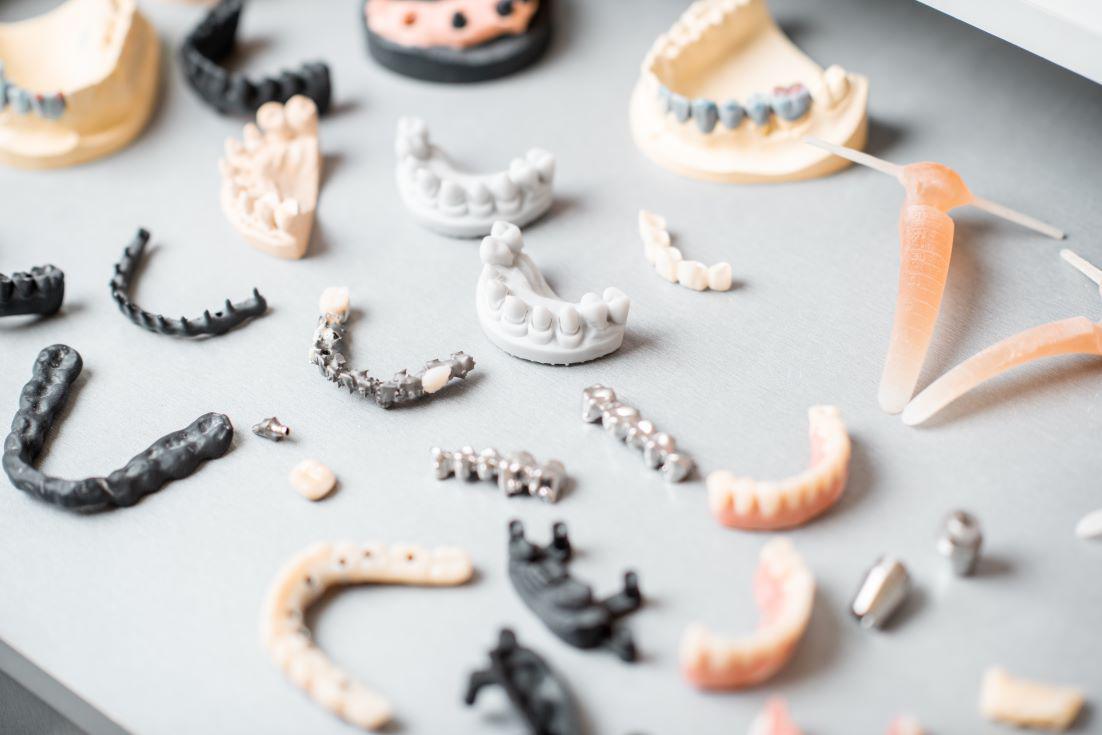 Dental professionals have been placing dental implants since the 1960s. Since then, technology has improved drastically, making the procedure simpler, more affordable, and more accessible. Modern dental implants are safe, effective, and long-lasting, and studies show that they are the best option to replace one or several missing teeth.
Dental professionals have been placing dental implants since the 1960s. Since then, technology has improved drastically, making the procedure simpler, more affordable, and more accessible. Modern dental implants are safe, effective, and long-lasting, and studies show that they are the best option to replace one or several missing teeth.
If you have recently discussed dental implants with your dentist, you probably know that there are two main options regarding the material of the dental implant: titanium and zirconia. So, which option is the best for you?
We discuss the advantages and disadvantages of these options in this blog to help you make an informed decision.
Titanium Dental Implants
Implants have traditionally been made of titanium, and for good reasons. Titanium dental implants have a low failure rate and have a high resistance to corrosion. More advantages of titanium dental implants include:
- Biocompatibility: This means that the body will not reject the implant because it does not recognize the material as a foreign invader. Titanium is also commonly used in other medical devices like heart valves, bone screws, and artificial hips.
- Ability to ossify: Osseointegration is the process of the titanium integrating with the bone tissue. Titanium can successfully integrate with the jawbone.
- Low thermal conductivity: Dramatic temperature changes due to eating cold foods like ice cream or hot foods like soup won’t cause irritation to the implant or implant area.
- High success rate: The success rate of titanium dental implants is 97 percent.
When considering your dental implant options, it’s important to know all aspects, including the disadvantages or risks. The disadvantages and risks of titanium dental implants include:
- Metal allergy: In rare cases, titanium implants fail because the patient has a metal allergy. Patients who have a history of allergies should undergo a metal allergy assessment before having a titanium implant placed.
- Local inflammation: Patients with autoimmune conditions like rheumatoid arthritis, Chron’s disease, and diabetes may experience local inflammation and irritation from the metal ions released from the implant.
- Poor aesthetics: Thin gum tissue around the implant may result in the dark metal showing through.
Zirconia Dental Implants
A newer dental implant material, zirconia, was introduced in 2011. It is an effective metal-free alternative for patients who are concerned about the effects of metal in their bodies, who have an autoimmune disorder, or who have metal allergies.
Zirconia offers several advantages including:
- Biocompatibility: Like titanium, zirconia will not be recognized as a foreign object by the body. Therefore, failure or an allergic reaction is very unlikely.
- Low bacterial attraction: Zirconia is less susceptible to plaque buildup, promoting excellent oral health, specifically periodontal health.
- High strength: Zirconia is nearly as strong as titanium dental implants. To make up for the lower strength, zirconia implants are often wider than titanium.
- Excellent aesthetics: Unlike titanium implants, zirconia blends in well with the natural tooth color, so patients with thin gum tissue don’t have to worry about the implant showing through the gums.
The disadvantages of zirconia dental implants include:
- Cost: Zirconia implants are slightly more costly than titanium implants. Cost will vary from location to location and dental practice to dental practice. Talk to your implant dentist to learn how significant the difference is between the two implant materials.
- No long-term data: Since zirconia is a new dental implant material, there are no long-term studies to determine how long zirconia implants might last. There is, however, a four-year study showing that one brand of zirconia implants is 99.4 percent.
- Risk of fracture: Because zirconia is not as strong as titanium, there is a slightly greater risk of fracture.
Titanium vs Zirconia Dental Implants: Summary
In summary, titanium and zirconia are both effective and safe dental implant options. Which one is best for your smile and overall health is up to you and your dentist.
Zirconia is the better option for patients who have metal allergies, an autoimmune disorder, want a more holistic option, or are concerned about the appearance of titanium below the gum line.
Titanium dental implants may be more suited for patients with lower budgets and who are looking for a trusted, long-lasting option.
Contact Our Implant Dentist Today
If you have one or more missing teeth, there’s no question that dental implants are the best tooth-replacement option. Our experienced implant dentist can discuss your dental implant material options, the procedure, and the treatment timeline, so you can make the best decision for your oral and overall health. Call us today to schedule an initial consultation.


